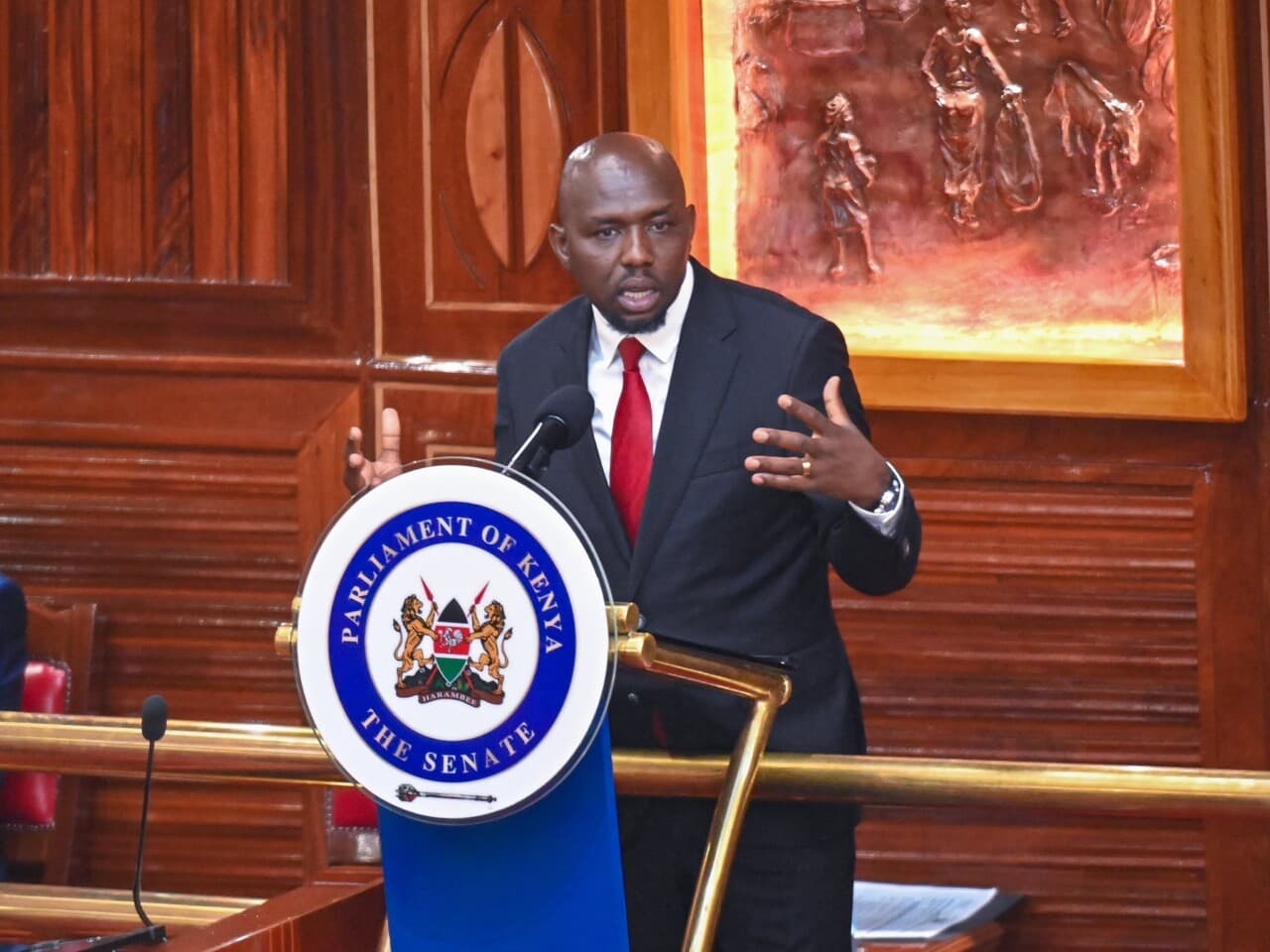We're loading the full news article for you. This includes the article content, images, author information, and related articles.
Interior Cabinet Secretary Kipchumba Murkomen asserts that roads, housing, and modern equipment are central to ending insecurity in bandit-prone regions, shifting the focus from firepower to development.

NAIROBI, Kenya – In a significant policy address before the Senate Plenary on Tuesday, November 5, 2025, Interior and National Administration Cabinet Secretary Kipchumba Murkomen made a direct appeal to Parliament for increased funding for security infrastructure, arguing that sustainable peace is contingent on development, not just force. “Banditry will not be won through guns and arresting people but through the development of infrastructure such as roads and enhancing security equipment,” Murkomen stated, positioning infrastructure as a cornerstone of the government's security strategy in volatile regions.
The Cabinet Secretary's request encompasses critical areas: the construction of dedicated security roads to open up remote, inaccessible areas used as hideouts by bandits; the improvement of police housing to address dire living conditions for officers; and the acquisition of modern communication systems to enhance operational effectiveness. This approach aligns with a long-standing government belief, articulated by previous security ministers and supported by international partners like the World Bank, that connecting marginalized regions is essential for both economic growth and stability. The Kenya Defence Forces (KDF) have been actively involved in constructing such roads in Laikipia and Baringo counties as part of these efforts.
CS Murkomen reported that “significant progress” has been made under Operation Maliza Uhalifu (OMU), a multi-agency security operation involving the National Police Service (NPS) and the KDF. The operation is active in Kerio Valley, Samburu, Laikipia, Baringo, Elgeyo Marakwet, and parts of Meru County. According to the Ministry of Interior, the operation has led to the reopening of schools and trading centres that were previously shut down due to insecurity. An independent analysis by the Armed Conflict Location & Event Data (ACLED) project in 2024 noted that the operation's first year saw a 50% drop in pastoralist violence. A December 2024 government report cited a 62% reduction in cattle rustling, the recovery of 172 illegal firearms, and the arrest of 250 suspects. However, specific, independently verified statistics on the operation's impact throughout 2025 require further investigation. While a study focusing on Turkana East by Ketter (2022) suggested the operation had reduced traditional threats, it also highlighted the risk of militarizing civilian spaces.
A critical component of Murkomen's plea is the improvement of police housing. This comes against the backdrop of a severe national housing crisis, with Kenya facing a deficit of over 2 million units. The challenge is exacerbated by the slow delivery of the government's Affordable Housing Programme, which completed only 1,655 units in 2024, a significant drop from the previous year. In a crucial clarification to the Senate, Murkomen confirmed that since a policy shift in 2018, the National Police Service no longer receives a direct budgetary allocation for housing construction. This responsibility was transferred to the State Department for Housing and Urban Development to consolidate development and integrate officers into communities. For the 2025/2026 fiscal year, the government has tripled the budget for police and prisons housing to KES 3.5 billion from KES 1 billion in 2024/25, signaling an intent to address the issue. However, the precise number of police officers lacking adequate housing remains a detail requiring further confirmation.
The Cabinet Secretary also lauded the achievements of the Jukwaa la Usalama (Security Forum) initiative, a series of public engagement forums held across all 47 counties since April 2025. According to the Ministry, these forums have improved collaboration and trust between security agencies and communities, allowing for grassroots-level conflict resolution. The initiative is designed to shift security from a top-down enforcement model to a participatory, citizen-driven approach. However, the forums have drawn criticism. Some analysts and civil society members argue they have served more as a political platform for the Cabinet Secretary than as a genuine mechanism for citizen involvement. Questions have been raised about whether the forums are an effective use of resources or a tool for the administration's 2027 re-election campaign. An independent, comprehensive review of the initiative's impact has yet to be published.
The total national security budget saw a proposed increase to KES 464.8 billion for the 2025/2026 fiscal year, up from KES 377.5 billion. This includes KES 125.7 billion for the National Police Service. The budget for road development was also slated to rise to KES 217.3 billion. While these figures represent a significant investment, CS Murkomen's appeal suggests the allocation for specific infrastructure projects within the security sector remains insufficient. The exact funding deficit for security roads, housing, and modern communication systems remains unconfirmed. As the government pivots its strategy to emphasize development as a tool for peace, the effective, transparent, and accountable use of these funds will be critical to achieving lasting stability in Kenya's most troubled regions.
Keep the conversation in one place—threads here stay linked to the story and in the forums.
Sign in to start a discussion
Start a conversation about this story and keep it linked here.
Other hot threads
E-sports and Gaming Community in Kenya
Active 9 months ago
The Role of Technology in Modern Agriculture (AgriTech)
Active 9 months ago
Popular Recreational Activities Across Counties
Active 9 months ago
Investing in Youth Sports Development Programs
Active 9 months ago
Key figures and persons of interest featured in this article